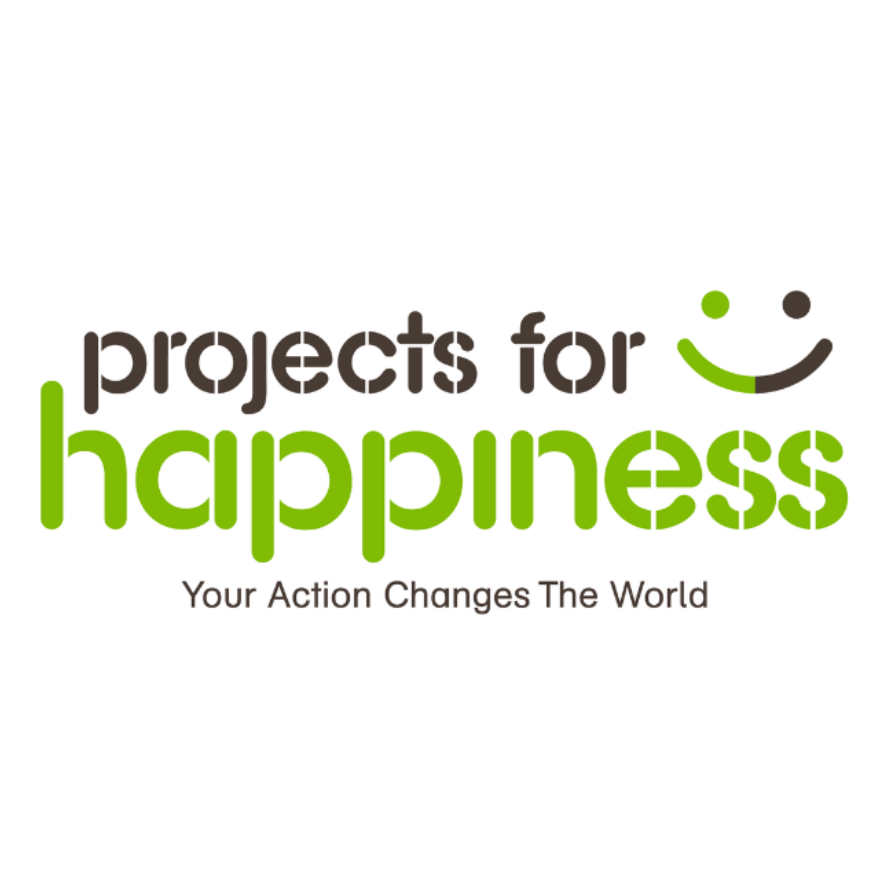
Outreach Programme CLEAN ( Care, Life, Eat, Action, Nutrition)
Quality Education
AMSA UPM Outreach Program - CLEAN (Care, Life, Eat, Action, Nutrition) is an awareness activity organized by AMSA-UPM. The activity has two major focus, namely "Balanced Nutrition-We Are What We Eat" and "Hygiene Hand-Hand Hygiene". In Malaysia, diet-related health issues have increased dramatically over the last few years. To practice healthy nutrition, public awareness and knowledge about nutritional information is very important. Consequently, labelling of nutrition has emerged as an important aspect in consumers' purchasing decisions and has been incorporated into the Food Regulations 1985. Besides nutrition, personal hygiene, especially hand hygiene, is also an important element in the program. Most infectious diseases are transmitted through physical actions performed in daily activities. Therefore, the program aims to provide exposure and awareness to the surrounding community about the importance of maintaining personal hygiene and the prevention of infectious diseases. Not only that, the program also aims to raise public awareness on various types of infectious diseases and related symptoms.

Overview of Issue / Background
AMSA UPM Outreach Program - CLEAN (Care, Life, Eat, Action, Nutrition) is an awareness activity organized by AMSA-UPM. The activity has two major focus, namely "Balanced Nutrition-We Are What We Eat" and "Hygiene Hand-Hand Hygiene".
In Malaysia, diet-related health issues have increased dramatically over the last few years. To practice healthy nutrition, public awareness and knowledge about nutritional information is very important. Consequently, labelling of nutrition has emerged as an important aspect in consumers' purchasing decisions and has been incorporated into the Food Regulations 1985.
Besides nutrition, personal hygiene, especially hand hygiene, is also an important element in the program. Most infectious diseases are transmitted through physical actions performed in daily activities. Therefore, the program aims to provide exposure and awareness to the surrounding community about the importance of maintaining personal hygiene and the prevention of infectious diseases. Not only that, the program also aims to raise public awareness on various types of infectious diseases and related symptoms.
Project Objectives (Vision & Mission)
Through this program, we hope that both students and the university or school can add knowledge about the importance of balanced nutrition, hygiene and can then use that knowledge to help the community in the future to be in line with UPM's goal of providing a meaningful contribution to the creation of wealth and development of the nation and the progress of human beings through the exploration and dissemination of knowledge.
Through this program, we hope to provide enough awareness to all levels of society who have no knowledge of infectious diseases, nutrition practices and the importance of personal hygiene. With the implementation of the program, community health problems can be mitigated, and indirectly improve the standard of living of the community.
As we know, infectious diseases are among the causes of increased mortality in Malaysia. Therefore, this program is carried out in the hope that it will help our country towards a healthy and free country from various infectious diseases.
Project Details (Activities and Tasks)
8.00 a.m.—9.00 a.m. : Briefing Session
9.00 a.m. – 10.00 a.m. : Educational Talk
10.00 a.m. – 12.00 p.m. : Basic Health Screening
12.00 p.m. – 1.00 p.m. : Lunch
1.00 p.m. – 3.00 p.m. : Health Exhibition / Playtime Station
3.00 p.m. – 4.00 p.m. : Lucky Draw / Closing Ceremony
Expected Project Result & Outcomes
Medical students from UPM able to gain knowledge about the importance balance diet, cleanliness and will be able to use that knowledge in helping the community in the with UPM's goal of contributing meaning to wealth creation and the development of the country as well as the progress of human beings through the exploration and dissemination of knowledge.
We hope to provide sufficient awareness to all levels of society who are now pursuing material and modernization and not to give proper attention to their own health. In addition, there are some people who do not have enough knowledge about various health problems. Indirectly, this programme can solve the problem. As we know, infectious disease is one of the causes of increased mortality rates in Malaysia. Therefore, this program is carried out in the hope that it will help our country towards a healthy and free country from various infectious disease.0% of RM1.00 Goal
Project Information
| University name | : | Universiti Putra Malaysia |
| Project leader name | : | Joanne Lee Kar Yin |
| Location of project held | : | Kampung Orang Asli Bukit Baja, Dengkil |
| Number of beneficiaries | : | 200 |
Section I
1. Summary of the project goals
We hope to increase awareness of society about the knowledge on infectious diseases, nutrition and the importance of self-hygiene. With the implementation of this program, public health problems can be reduced, and indirectly improve the living standard of the community.
2. Other fund-raising efforts
Fund raising through students and lecturers from Faculty of Medicine and Health Sciences of Universiti Putra Malaysia were done to support the expenditure of this programme. Other than that, Asian Medical Student Association Universiti Putra Malaysia (AMSA-UPM) also contributed to this programme
3. Details of the programme
(a) Were there unanticipated difficulties? Budget comstraints?
The programme was well conducted since we had inspected the location few days earlier, and all things went smoothly on the day of programme. But there were still some unexpected conditions on the day of this programme. For example, the weather turned bad and started to rain during the programme. Since the facilities of the Kampung is not very well, which the roof was broken, therefore we were forced to stop the activities for a while until the weather turned.
And for follow-up session, we are forced to postpone the session twice due to clashing of events, which are the Deepavali open house and university event of Cyberjaya University College of Medicine and Health Sciences (CUCMS), which some of our volunteers are involved in this event. Besides, we chose to do the follow-up session on Saturday, which is not that appropriate since most of the aborigines work on Saturday, and therefore the responses are not so encouraging.
We don’t have any budget constraints for this project.
(b) Language or cultural barriers?
There is no language barrier as our team members were fluent in both English and Bahasa Melayu. So, most of the team members can communicate well with the aborigines using Bahasa Melayu. On the other hand, we do meet some culture barriers throughout the event. We found that most of the aborigines are shy and introvert, included the adults and children. Our members try hard to interact and communicate with them in order to involved them in our programmes. Despite of shy, they are polite and seems to have good manner education.
(c) What worked well? What didn’t work well?
The health screening part ran smoothly with the aids of volunteers, consultant doctors and our team members. For other activities, such as health games, health talk, Q and A session, and prize-giving ceremony also went smoothly. But we realized that the children are a bit passive during the event, thus our members try to bring up the atmosphere and try their best to interact with the children. On the other hand, we didn’t work well during the follow-up session as we got no participants at the start of session. To overcome it, we visited the aborigines house by house and performed health screening procedures in their house. Fortunately, we got more responses as the session progressed.
(d) How many people benefited or will benefit from your project? Who are these people?
We estimated 200 people will benefited from our project. The benefited group will be the aborigines which will get more knowledge on health issues and get a medical check up for free. Other than that, our team members and volunteers which are the medical students from Universiti Putra Malaysia (UPM) and students from Cyberjaya University College of Medical Sciences (CUCMS), also benefited from this programme as we learnt the ways to conduct an event and improve our skills to communicate with the aborigines and indirectly contributed to the society. The consultation doctors also gain more experiences in consulting the public which is not often to meet in hospitals and clinics.
(e) What is the long-term impact and sustainability of this project? Is there a future for your project?
Through this program, we hope to increase awareness to the society especially the aborigines which some of them may have lower education level. We provided some basic knowledge on infectious diseases, nutrition and the importance of self-hygiene to them. We also donated two automated blood pressure machines to the village, and we hope they can make use of it so that they can aware of their health statuses. With the implementation of the program, public health problems for example hypertension and diabetes can be reduced, and indirectly improve the living standard of the community. The program is conducted to help our country towards a healthier state and a community which free from various infectious diseases and non-communicable diseases that lead to high mortality rate. And yes, in the future AMSA-UPM as a part of the advocacy initiative, we will conduct a fund-raising activity. This project will also include an annual appeal to further support the project. We will use social medias to publicize its research findings, which also helps to attract new members to the organization of this project.
Section II
1. How does or will your project contribute to happiness?
This programme can make a difference to their daily life. This project can spread the awareness and knowledge of healthy and balanced diet to prevent non-communicable diseases, importance of hand washing to promote hygiene and protect children from diseases. Prevention is better than cure. Knowledge and maintaining good habits are the key towards a cleaner and better life. We believe that by reducing the number of cases of diseases in the community, the living standard will be increased and ease the burden of the aborigines thus contribute to happiness of the aborigines. As the saying goes, health is wealth. The director of this programme, Joanne said, “we hope to benefit the aborigines by using the knowledge that we own as a medical student.” And this is the main goal of this outreach programme CLEAN.
2. Has your project changed the way you think about the world? How has it changed you?
Yes. We learnt that the society has many different small communities which each community has different education level, living standard and surroundings. Mostly of them only undergo primary education and have a poor knowledge and awareness about their health. The children in kampung orang asli are more obedient and introvert. They have a good family education and act politely when we were giving them food and goodies bags.
Through this programme, our team members gained new experiences and learnt the way to communicate with the aborigines, which are the group of people that are less exposure to the main society that need help to improve their quality of life. We are looking forward volunteerism events and hope to do more contribution to the needy society with the knowledge and ability we have now Yes. We learnt that the society has many different small communities which each community has different education level, living standard and surroundings. Through this programme, our team members gained new experiences and learnt the way to communicate with the aborigines, which are the group of people that are less exposure to the main society that need help to improve their quality life.
3. Quotes
Small changes can contribute and eventually make a big difference, through small actions in daily life. (Joanne Lee Kar Yin)
Begin the journey of contributing to community by bringing hope and love to those who in need. ( Foong Wei Ern )
Image Gallery






